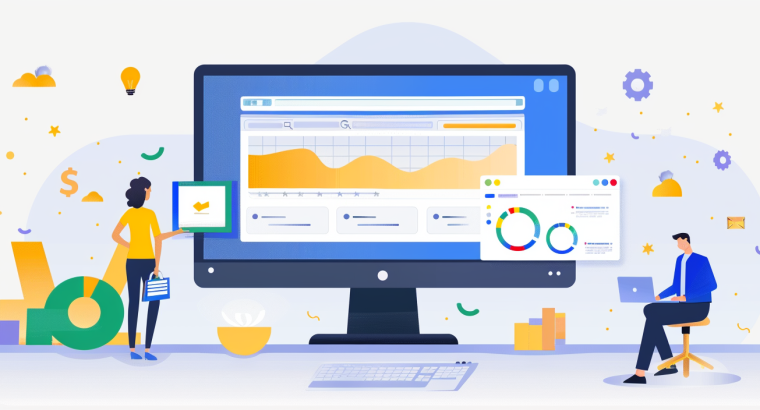SEO Basics for Small Business Owners
In today’s digital age, having a strong online presence is crucial for small businesses. Search Engine Optimization (SEO) is a powerful tool that can help you achieve this by improving your website’s visibility on search engines like Google. However, SEO can seem daunting, especially for small business owners who may not have the technical expertise or resources of larger companies. This blog post will break down the basics of SEO and provide actionable tips to help you optimize your website effectively.
What is SEO and Why is it Important?
SEO stands for Search Engine Optimization. It involves various strategies and techniques aimed at improving your website’s ranking on search engine results pages (SERPs). Higher rankings lead to increased visibility, which can drive more traffic to your website and ultimately boost your sales and revenue. For small businesses, effective SEO can level the playing field, allowing you to compete with larger companies.
Understanding SEO Basics
SEO is a multifaceted discipline that can be broken down into several key components:
♦ Keyword Research
♦ On-Page SEO
♦ Off-Page SEO
♦ Technical SEO
♦ Content Marketing
Keyword Research
Keyword research is the foundation of any successful SEO strategy. It involves identifying the words and phrases that potential customers are using to search for products or services like yours.
Tips for Effective Keyword Research:
♦ Use Keyword Research Tools: Tools like Google Keyword Planner, Ahrefs, and SEMrush can help you find relevant keywords with high search volume and low competition.
♦ Focus on Long-Tail Keywords: Long-tail keywords are longer, more specific phrases that are less competitive and more likely to convert. For example, instead of targeting “shoes,” you might target “women’s running shoes for flat feet.”
♦ Analyze Competitors: Look at the keywords your competitors are ranking for to identify potential opportunities for your own site.
On-Page SEO
On-Page SEO refers to the optimization of individual web pages to rank higher and earn more relevant traffic. This involves optimizing both the content and HTML source code of a page.
Key On-Page SEO Elements:
♦ Title Tags: Ensure your title tags are unique, descriptive, and include your target keywords.
♦ Meta Descriptions: Write compelling meta descriptions that accurately describe the content and include relevant keywords.
♦ Header Tags: Use H1, H2, and H3 tags to structure your content and make it easier for search engines to understand.
♦ Content Optimization: Ensure your content is high-quality, relevant, and includes your target keywords naturally. Avoid keyword stuffing.
♦ Internal Linking: Use internal links to connect related content on your site, which helps search engines understand your site’s structure and improves user experience.
Off-Page SEO
Off-Page SEO focuses on building your website’s authority and reputation through external means, primarily backlinks. Backlinks are links from other websites to your own and are a crucial ranking factor for search engines.
Strategies for Building Quality Backlinks:
♦ Guest Blogging: Write high-quality articles for reputable blogs in your industry, including a link back to your site.
♦ Social Media Promotion: Share your content on social media platforms to increase visibility and attract backlinks.
♦ Influencer Outreach: Collaborate with influencers in your niche to gain exposure and backlinks.
♦ Online Directories: Submit your website to relevant online directories and business listings.
Technical SEO
Technical SEO involves optimizing your website’s infrastructure to make it easier for search engines to crawl and index your content. This ensures that your site is fast, secure, and user-friendly.
Essential Technical SEO Tips:
♦ Mobile-Friendliness: Ensure your website is responsive and provides a good user experience on all devices. Use Google’s Mobile-Friendly Test tool to check your site’s mobile compatibility.
♦ Page Speed: Optimize your site’s loading speed by compressing images, leveraging browser caching, and minimizing CSS and JavaScript files. Use tools like Google PageSpeed Insights to analyze and improve your site’s speed.
♦ Secure Sockets Layer (SSL): Install an SSL certificate to encrypt data and improve your site’s security. HTTPS is a ranking factor for Google.
♦ XML Sitemap: Create and submit an XML sitemap to help search engines understand your site’s structure and find all your pages.
♦ Robots.txt: Use a robots.txt file to control which pages search engines can and cannot crawl.
Content Marketing
Content marketing is a crucial component of SEO. Creating high-quality, valuable content not only attracts visitors but also encourages them to share your content and link back to your site.
Effective Content Marketing Strategies:
♦ Blogging: Regularly publish informative and engaging blog posts on topics relevant to your audience. This can help establish your authority and attract organic traffic.
♦ Visual Content: Incorporate images, infographics, and videos to make your content more engaging and shareable.
♦ User-Generated Content: Encourage your customers to create and share content related to your products or services. This can include reviews, testimonials, and social media posts.
♦ Content Repurposing: Repurpose your content into different formats (e.g., turning a blog post into a video or infographic) to reach a wider audience.
Conclusion
Implementing these SEO basics can significantly improve your website’s visibility, drive more traffic, and ultimately boost your business growth. While SEO requires ongoing effort and patience, the long-term benefits are well worth the investment. Start by focusing on keyword research, on-page optimization, building quality backlinks, and ensuring your site’s technical health. Combine these efforts with a robust content marketing strategy, and you’ll be well on your way to SEO success.
Ready to take your SEO to the next level? Subscribe to our newsletter for more expert tips and tools to help you optimize your website and grow your business. Let’s achieve online success together!

